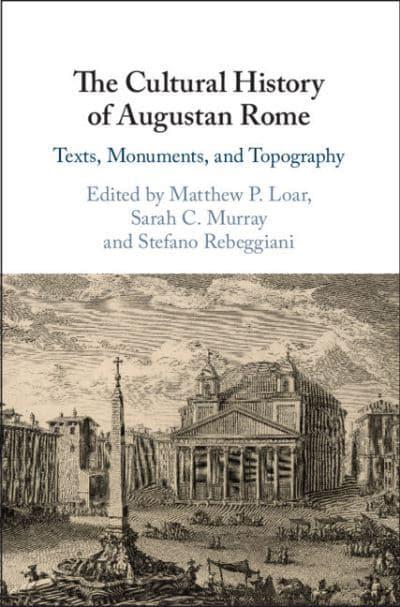The cultural history of Augustan Rome
texts, monuments, and topography
- ISBN: 9781108727792
- Editorial: Cambridge University Press
- Fecha de la edición: 2023
- Lugar de la edición: Cambridge. Reino Unido
- Encuadernación: Rústica
- Medidas: 24 cm
- Nº Pág.: 206
- Idiomas: Inglés

This volume wades into the fertile waters of Augustan Rome and the interrelationship of its literature, monuments, and urban landscape. It focused on a pair of questions: how can we productively probe the myriad points of contact between textual and material evidence to write viable cultural histories of the ancient Greek and Roman worlds, and what are the limits of these kinds of analysis? The studies gathered here range from monumental absences to monumental texts, from canonical Roman authors such as Cicero, Livy, and Ovid to iconic Roman monuments such as the Rostra, Pantheon, and Solar Meridian of Augustus. Each chapter examines what the texts in, on, and about the city tell us about how the ancients thought about, interacted with, and responded to their urban-monumental landscape. The result is a volume whose methodological and heuristic techniques will be compelling and useful for all scholars of the ancient Mediterranean world.
Introduction Matthew P. Loar, Sarah C. Murray and Stefano Rebeggiani; 1. Monumental insignificance: the rhetoric of Roman topography from Livy's Rome D. S. Levene; 2. Cicero, quid in alieno saeculo tibi? The 'republican' rostra between Caesar and Augustus Thomas Biggs; 3. The Julian Calendar and the Solar Meridian of Augustus: making Rome run on time Peter Heslin; 4. Monument men: buildings, inscriptions, and lexicographers in the creation of Augustan Rome Dan-el Padilla Peralta; 5. The Porticus Liviae in Ovid's Fasti (6.637–648), Part I: things; Part II: words Maddalena Bassani and Francesca Romana Berno; 6. Greek poets on the Palatine: a wild cow chase? Carolyn MacDonald; 7. Ovid's two-body problem Stephanie Ann Frampton.






